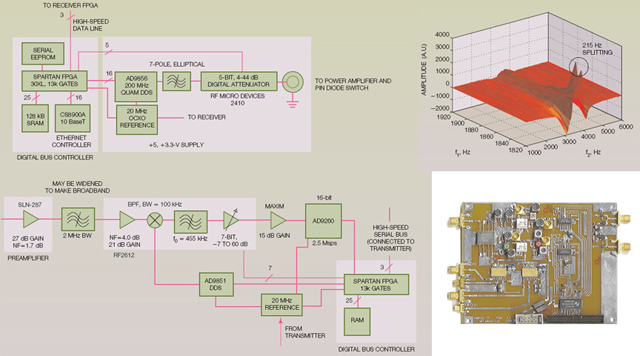
To investigate the scaling issues for quantum computation using thermalized ensembles of spins, we are building a rudimentary quantum
computer using nuclear magnetic resonance (NMR). We discuss the experimental issues facing the scalability of this technique including
the number of qubits, issues of classical versus quantum behavior, and polarization. Due to the weak signals measured in NMR, the most
significant challenge to practical devices is polarization enhancement. We present the architecture for a simple NMR spectrometer that
is table-top, low-cost, and software-radio driven using commodity electronics and unconventional permanent magnet designs. Optimizations
specific to using this machine as a computational device, such as probe design, compilation, and on-line control, are discussed.